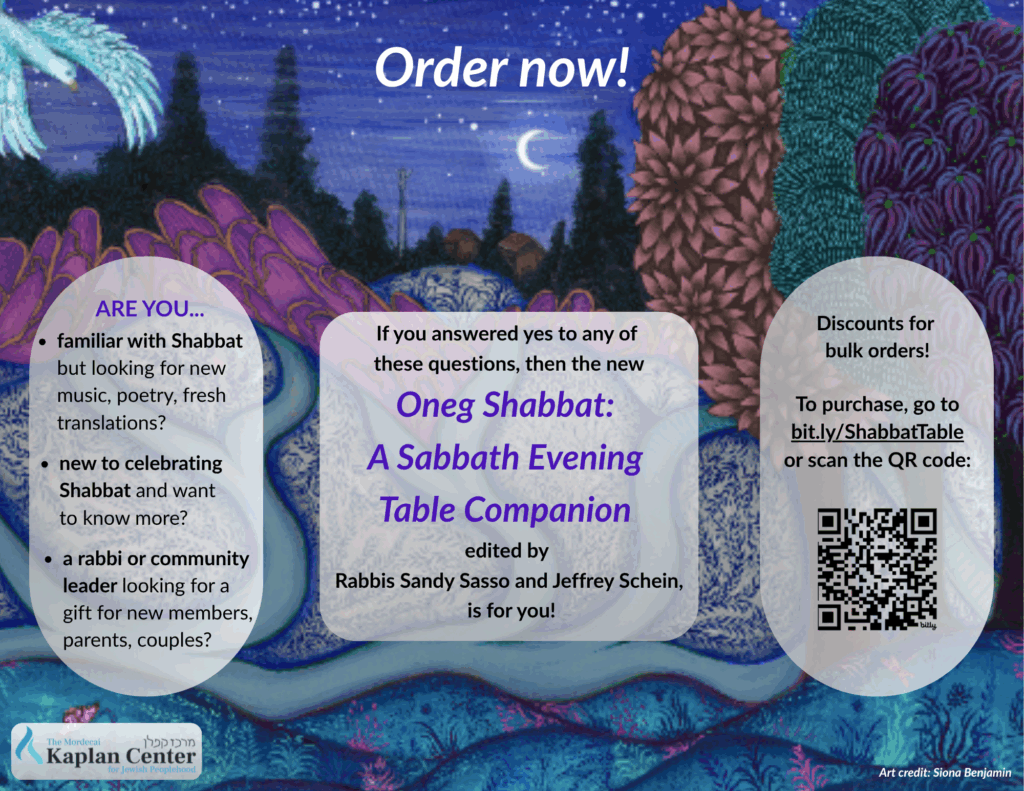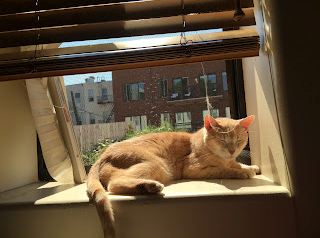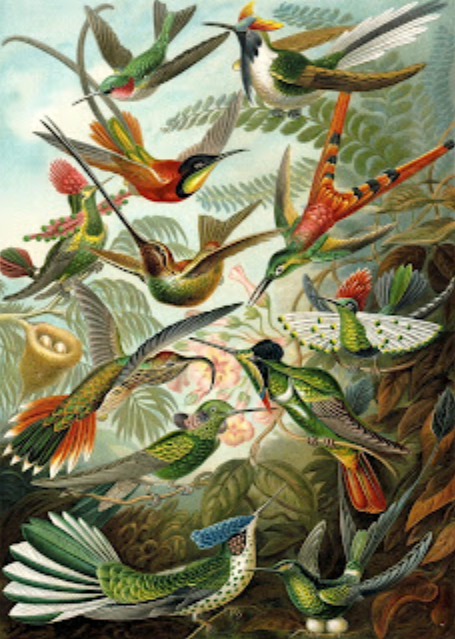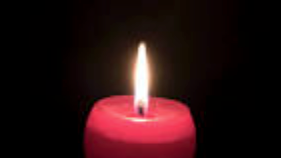edited by Rabbis Sandy Sasso and Jeffrey Schein

Page 10 – Niggun
Page 11 – Shalom Aleichem
Page 13 – Candle Lighting
Page 17 – Kiddush
Reconstructionist
Traditional
Page 21 – Hamotzi
Page 22-23 – Birkat
Page 24 – Alternative Birkat: (coming soon)
Page 25 – Bendigamos
Page 26-27 – Songs (coming soon)
Shiru ladonai:
Lo yisa goy:
Ma gadlu:
Mizmor shir:
Eleh Chamdah:
Page 26-27 – Songs (coming soon)
Shiru ladonai:
Lo yisa goy:
Ma gadlu:
Mizmor shir:
Eleh Chamdah:
Page 29
Yedid nefesh: (coming soon)
Page 30
Chiri Bim: (coming soon)
Page 31 – Ose Shalom
Page 41 – La’asok
Page 10 – Niggun:
Page 11 – Shalom Aleichem:
Page 13 – Candle Lighting:
Page 17 – Kiddush:
Reconstructionist
Traditional
Page 21 – Hamotzi:
Page 22-23 – Birkat:
Page 24 – Alternative Birkat: (coming soon)
Page 25 – Bendigamos:
Page 26-27 – Songs (coming soon)
Shiru ladonai:
Lo yisa goy:
Ma gadlu:
Mizmor shir:
Eleh Chamdah:
Page 26-27 – Songs (coming soon)
Shiru ladonai:
Lo yisa goy:
Ma gadlu:
Mizmor shir:
Eleh Chamdah:
Page 29
Yedid nefesh: (coming soon)
Page 30
Chiri Bim: (coming soon)
Page 31 – Ose Shalom:
Page 41 – La’asok:
Full Playlist of the above:

A weekday nap is time stolen
From schedules and chores.
Okay
But a temporary fix.
A Shabbat nap, however, is a choice
To fulfill an obligation to the
Holy
In the mitzvah of deep rest.
You must set the alarm for the weekday nap
Nod off for a second then
Wake!
The day must continue.
But the Shabbat nap has no end
You may sleep until you’re done.
Enjoy
Your sweet and holy vacation.
Blessed Mystery,
There are no worries for tomorrow
There are no regrets from last week
Only
This nice Shabbat nap.
Amen

A weekday nap is time stolen
From schedules and chores.
Okay
But a temporary fix.
A Shabbat nap, however, is a choice
To fulfill an obligation to the
Holy
In the mitzvah of deep rest.
You must set the alarm for the weekday nap
Nod off for a second then
Wake!
The day must continue.
But the Shabbat nap has no end
You may sleep until you’re done.
Enjoy
Your sweet and holy vacation.
Blessed Mystery,
There are no worries for tomorrow
There are no regrets from last week
Only
This nice Shabbat nap.
Amen

Blessed God of our ancestors, beginning the chain of work, we give thanks:
This Shabbat I will rest from my fears
And exercise my endurance.
This Shabbat I will eat food that builds me up
And reject the comforts of junk.
This Shabbat I will pray our prayers
And ignore the lure of cults and false gods.
This Shabbat I will laugh at the schmucks in power
And dance away from their greed.
This Shabbat I will reject tempting easy answers
And embrace doubt and obligation.
This Shabbat I will nap through the cruelty
And revel in the bravery of love.
Shabbat Shalom
Amen
For the portion of dough we take off the challah before we bake it in order to sustain high priests, artists and those who are in need;
For the seed and the earth and the rain and the sun and the farmer and the picker and the miller and the baker and the trucker and the packager and the store owner and the grocery checker and the shopper and the cook and the waiter and waitress and those who will clean up after us, for those who brought us this food that we bless together;
For the scientists and activists and the teachers and the learners and the new farmers and the leaders who work to help us heal this earth, our home;
For all those who work to sustain us
For all those who work for sustainability.
Baruch ata Adonai Eloheinu Melech HaOlam
Brucha at Shechina, Ruach Ha Olam
Blessed One-ness,
HaMotzi Lechem Min HaEretz
We give our thanks to you all.
Amen
Between stimulus and response, there is a space. In that space is our power to choose our response. In our response lies our growth and freedom.” Viktor Frankl
In this holy space that is Shabbat day
We can pause our pain
And look for compassion
And then for truth
Before we decide upon
Our response.
In this holy space that is Shabbat day
We can pray to observe others’ anger
With tenderness
And understanding
Before we choose
Our reaction.
In this holy space that is Shabbat day
We can stop and note
All ambient sounds and feelings
And then, with honest respect,
Decide for freedom and
A deep rest. Amen

We give thanks for the ones who offer prayers.
We give thanks for the ones who take action.
We cannot heal the world without both,
We must pray AND we must do.
When so many people
Have vanished into the darkness
We light these candles
And say the blessings
And pray for those who have been injured or killed or raped.
And pray for those who are worried and homeless and hungry.
And pray for those who are lost to themselves.
May we all be joined in yearning holy conversation
And pray when prayer is needed.
We must pray AND we must do.
When so many people
Have vanished into the darkness
We light these candles
And bless those who are working so hard to make things better.
May we join with the stubborn
Of all places and religions and races and gender and sexual orientations,
Who, when times are hard,
Refuse to disappear,
Those who fight so hard for their communities
With food and advice and shelter and organizing and work and love and insistence and resistance.
May we all be joined in holy struggle
And act when action is needed.
We must pray AND we must do.
We give thanks for the ones who offer prayers.
We give thanks for the ones who take action.
We cannot heal the world without both,
Blessed is the Source of Light!
We are holy with the obligation to speak goodness and do good
As we light these Shabbat/Mourning/Hanukkah candles
We will pray and we will do.
The moon is wrapped in black,
The stars are stored away.
There is from north to south no simple spark of day.
In the secret tent of my heart light a white candle and say:
In the north and the south the sun will bloom today
(Hebrew, first verse)
את כל הכוכבים טמן,
את הסהר עטף בשחור
מצפון ועד תימן
אין קרן אור.
My heart asked the evening,
my deep and compassionate companion:
How can fire
sprout golden wings
and embark on a magical flight.
What is its secret?
A lonely flower replied to the heart:
Love is the root of fire.
The sea breeze
answered my thoughts:
The lily of all freedom in the universe,
this is the fire of wondrous light.
My blood hearkens–
and weeps bitterly.
Woe, a flame–even an auto-da-fe.
It was also said–
fire is a wondrous mockery of dust.
Is it proper for a mortal woman,
soft of heart,
to roam and wander
in the garden of fire.
How dare she
in the smoke of waste conjure
the ember of peace,
an ember with which Sarah Bat Tovim would light
a Sabbath candle in the gloom of pain.
Between the walls of nightmare
it would bloom, burning slowly
in the crumbling house, in the pit.
Facing it, the woman of sorrowful depths
shut her eyes,
to worry, to mourning, to shame, to the mundane.
The candle’s sparks are palaces,
and in the midst of the palaces
mothers sing to the heavens
to endless generations.
And she wanders in their midst
toward God, with a barefoot baby
and with the murdered.
Hurrah!
The soft of heart comes in dance
in the golden Holy of Holies, inside a spark.
Taken from Seven Poems by Zelda, translated by Varda Koch Ocker
Poems Exploring Shabbat Themes selected by Dr. Jonathan Paradise, Professor of Hebrew Literature, University of Minnesota
Yom Kippur, Evening, My Father
My father blessed me and his hands trembled.
(Grownups always tremble regarding children.)
In his eyes
were reflected all my future sins.
We played the binding of Abraham and Isaac.
His premature death is the cleaver
raised above me. Always hovering.
What I think is the moon
or an airplane or my beloved’s face
is just the cleaver
of my father’s and my game.
No one will know it’s a game.
(Even God won’t.)
Poem: Yehuda Amichai
Translation: Jonathan Paradise 5/25/93
For the Hebrew, click the below PDF:
At Two Hopes
At a distance of two hopes from the battle I had a vision of peace.
My weary head must walk, my legs dream on.
The burnt man said: ‘I am the bush that burned and was consumed, Come close.’
You have permission. Leave your sandals on your feet. This is the place.
Poem: Yehudah Amichai
Translation: J. Paradise
Songs of Journey’s End
שירי סוף הדרך
לאה גולדְברג
הַדֶּרֶךְ יָפָה עַד מְאד – אָמַר הַנַּעַר.
הַדֶּרֶךְ קָשָׁה עַד מְאֹד – אָמַר הָעֶלֶם.
הַדֶּרֶךְ אָרְכָה עַד מְאֹד – אָמַר הַגֶּבֶר.
יָשַׁב הַזָּקֵן לָנוּחַ בְּצַד הַדֶּרֶךְ.
צוֹבְעָה הַשְּׁקִיעָה שֵׂיבָתוֹ בְּפָז וָאֹדֶם,
הַדֶּשֶׁא מַבְהִיק לְרַגְלָיו בְּטַל-הָעֶרֶב,
צִפּוֹר אַחְרוֹנָה שֶׁל יוֹם מֵעָלָיו מְזַמֶּרֶת:
– הֲתִזְכֹּר מַה יָּפְתָה, מַה קָּשְׁתָה, מָה אָרְכָה הַדֶּרֶךְ?
אָמַרְתָּ: יוֹם רוֹדֵף יוֹם וְלַיְלָה – לַיְלָה.
הִנֵּה יָמִים בָּאִים – בְּלִבְּךָ אָמַרְתָּ.
וַתִּרְאֶה עֲרָבִים וּבְקָרִים פּוֹקְדִים חַלּוֹנֶיךָ,
וַתֹּאמַר: הֲלֹא אֵין חָדָשׁ תַּחַת הַשֶּׁמֶשׁ.
וְהִנֵּה אַתָּה בָּא בַּיָּמִים, זָקַנְתָּ וְשַׂבְתָּ,
וְיָמֶיךָ סְפוּרִים וְיָקָר מִנְיָנָם שִׁבְעָתַיִם,
וַתֵּדַע: כָּל יוֹם אַחֲרוֹן תַּחַת הַשֶּׁמֶשׁ,
וַתֵּדַע: חָדָשׁ כָּל יוֹם תַּחַת הַשֶּׁמֶשׁ.
לַמְּדֵנִי, אֱלֹהַי, בָּרֵך וְהִתְפַּלֵּל
עַל סוֹד עָלֶה קָמֵל, עַל נֹגַהּ פְּרִי בָּשֵׁל,
עַל הַחֵרוּת הַזֹּאת: לִרְאוֹת, לָחוּשׁ, לִנְשֹׁם,
לָדַעַת, לְיַחֵל, לְהִכָּשֵׁל.
לַמֵּד אֶת שִׂפְתוֹתַי בְּרָכָה וְשִׁיר הַלֵּל
בְּהִתְחַדֵּשׁ זְמַנְּךָ עִם בֹּקֶר וְעִם לֵיל,
לְבַל יִהְיֶה יוֹמִי הַיּוֹם כִּתְמוֹל שִׁלְשׁוֹם.
לְבַל יִהְיֶה עָלַי יוֹמִי הֶרְגֵּל.
I
The road is very beautiful said the boy.
The road is very hard said the youth
The road has been very long said the man.
The old man sat down to rest at the side of the road
Sunset paints his gray hair with red and gold,
Grass glistens at his feet in the evening dew,
The day’s last bird sings overhead:
Will you recall how beautiful, how hard, how long was the road?
II
And you replied: each day pursues another one night begets the next…
Behold! Days are coming you said to yourself.
You saw evenings and mornings visiting your windows,
And you said: ‘Why there is nothing new under the sun!’
And now your days are many, you’ve aged, grown gray.
Those days, now numbered, are precious seven fold.
Now you know: each day is the last under the sun,
Now you know: new is each day under the sun.
III
So teach me, O God, to bless and to praise
For the secret of the leaf that withers, for the gleam of the ripened fruit,
For this freedom: to see, to feel, to breathe,
to know, to hope, to fail.
Teach my lips blessings and songs of praise
As Your Time is renewed with dawn and dusk,
Let my day today not be just like days gone by,
Let my day never become mere habit.
Poem: Leah Goldberg שירי סוף הדרך
Translation: Jonathan Paradise, 4/27/06
Delicate Promise
Again You renew
a year for us
with aromas of honey
cinnamon and clove and with
a few yellowing leaves
on a silver poplar.
Again You renew
a year for us. Hands
we knew last year—
how feeble their articulation now
and but a delicate promise retained
in the fingers of a poplar or pine.
Again You renew
a year for us.How pardoned, how forgiven
the pain in the swaying cradle
in the wings of a poplar
and new happiness, fragrant.
Aromas of honey and cinnamon
and the rustling of leaves and joy
and delicate promise. And how many
shades between green and green
You renew for us
in the leaves of a poplar or pine.
Poem: Esther Ettinger
Translation: Jonathan Paradise 7/14/2014
For the Hebrew, click the below PDF:
Medal
I think we deserve a medal
Not for something special that we’ve done
And not for what we may yet do
Because of the dreams—
We deserve it.
The dreams we dreamt by night
and snuffed out by day.
Because of the thoughts we thought
and didn’t dare
look in the mirror afterwards
Because of that thing
that happened—
and we buried it
leaving no trace
and without telling a soul
All these—
Iron chains on our feet
that with all their weight
we manage every morning
to pick up our feet,
and walk
sometimes even dance
That’s why.
Poem: Giora Fisher
Translation: Jonathan Paradise 3/16/2015
For the Hebrew, click the below PDF:
Entering the Pardes
The illustrations in the table companion can tell their own story with you as the interpreter.
Following a traditional mode of Jewish interpretation known as the pardes/paradise we invite you to look any of the images in the Shabbat Table Companion and share your responses.
Here are the questions:
פ Peshat
(literal or simple meaning)
What do you see in the image?
ר Remez
(clues to deeper meaning)
What do you see that surprises or puzzles you?
ד Derash
(homiletical or interpretative meaning)
What story/ message do you think the image is telling?
ס Sod
(mystery or secret meaning)
What does the image evoke for you (feelings, values, your own stories…)?
There is a famous midrash (Genesis Rabbah 11:8) that at Creation, the day of Shabbat came before God to complain: “All the days of the week have a ‘mate’ (Sunday has Monday, Tuesday has Wednesday, and Thursday has Friday). But I have no mate!”
God replied, “The people of Israel will be your mate!”
This leaves Shabbat a bit out in the cold doesn’t it? Unlike the other days, it appears that Shabbat has no companion or soul mate.
But the midrash continues assuring that God had always imagined a mate for Shabbat. God intended Israel to be the Sabbath’s partner.
We deeply appreciate the spirit of this midrash.
Everyone needs a companion. We imagine this volume as such a companion. We hope the resources provided here will help many Jewish and Jewishly connected households deepen their relationship to the Sabbath. We hope the songs, poetry, artwork and dialogues we will be good matchmakers for this long standing love affair between the Sabbath and the Jewish people.
A reflection from the diaries of Mordecai Kaplan:
“Perhaps the time has come when we must think of shifting the center of gravity of worship from the public gathering to the home. If the family were to become the main unit in religious services, or the home the principal place for divine communion, the practice of worship might be given a new lease soon life. In general, it seems to be that if we want Jewish life to survive within the present political and economic framework, it will be necessary to decentralize it in certain of its aspects and well as to centralize it in others.”
These perspectives are drawn from the more general work of the editors Rabbi Sandy Sasso and Jeffrey Schein.
The introduction below about prayer and spirituality first appeared in Kol Ha-No’ar: The Voice of Children (Reconstructionist Press 2005) and equally applies to the table companion:
Find additional reflections about this topic from Sandy Sasso below:
https://www.spiritualityandpractice.com/books/features/view/15228/childrens-spirituality
The full range of Jeffrey Schein’s views are articulated in the e-book Life Long Spirituality and God Connection.
Text, Teacher and Student-Enhancing Spiritual Development by Jeffrey Schein (The Reconstructionist 2002)
For Shabbat Table Talk around issues of Tikkun Olam
https://www.reconstructingjudaism.org/tikkun-olam/tikkun-olam-resources-for-action/
For Shabbat Table Talk Around the Weekly Torah portion
https://jewishjourneyproject.weebly.com
https://rabbisacks.org/covenant-conversation/vayetse/?family-edition=true
Rabbi Jeffrey Eisenstat on Kaplan’s Shabbat Seder and the Table Companion:
I remember hearing Mordecai Kaplan speak in the Chapel of the new Reconstructionist Rabbinical College in 1972. Kaplan said that the Friday night evening service at synagogues in the North America was not the best expression of Judaism. (“Reconstructionist” 1972). He gave the example of the Passover Seder as a better forum for educating and celebrating Judaism. The Seder brought people and families together through story, song, food, celebration, and questions. The Seder created a living Judaism in the home filled with wisdom, art, holiness and family connectedness. This idea stayed with me over the past 50 years as I often created family and synagogue Seders for Shabbat.
Kaplan’s vision comes alive again in a remarkable new book edited by Rabbis Jeffrey Schein and Sandy Eisenberg Sasso called Oneg Shabbat: A Sabbath Evening Table Companion. It offers a Friday Night Seder around the table, filled with questions to spark discussion, blessings, music both old and new, and stunning artwork that captures the beauty of Shabbat. This Haggadah for the Family Shabbat table includes the values that Kaplan writes about in Judaism as a Civilization (1934) – the essence of kehillah, community; hokhmah, the pursuit of wisdom for families for learning; hiddur mitzvah, finding beauty in art and music; and kedushah, which is the holiness that ultimately emerges when we gather around the table for the celebration of family and Shabbat.
Now with Oneg Shabbat: A Sabbath Evening Table Companion families everywhere can create the same spirit of the Passover Seder on Shabbat in their own homes. With today’s technology, this Table Companion even invites distant friends and relatives to join together virtually and to keep growing their resources for Shabbat celebration through a digital supplement available on the Kaplan Center website. I believe that Rabbis Sasso and Schein have modeled, in contemporary terms, what Kaplan illustrated in his article, “The Sabbath Eve Seder: An Indispensable Innovation.”
Rabbi Jeffrey Eisenstat, Board Member of The Mordecai Kaplan Center for Jewish Peoplehood
Trish Arlin
Siona Benjamin
John Domont
Marcia Falk
Jill Minkoff

*no social media







